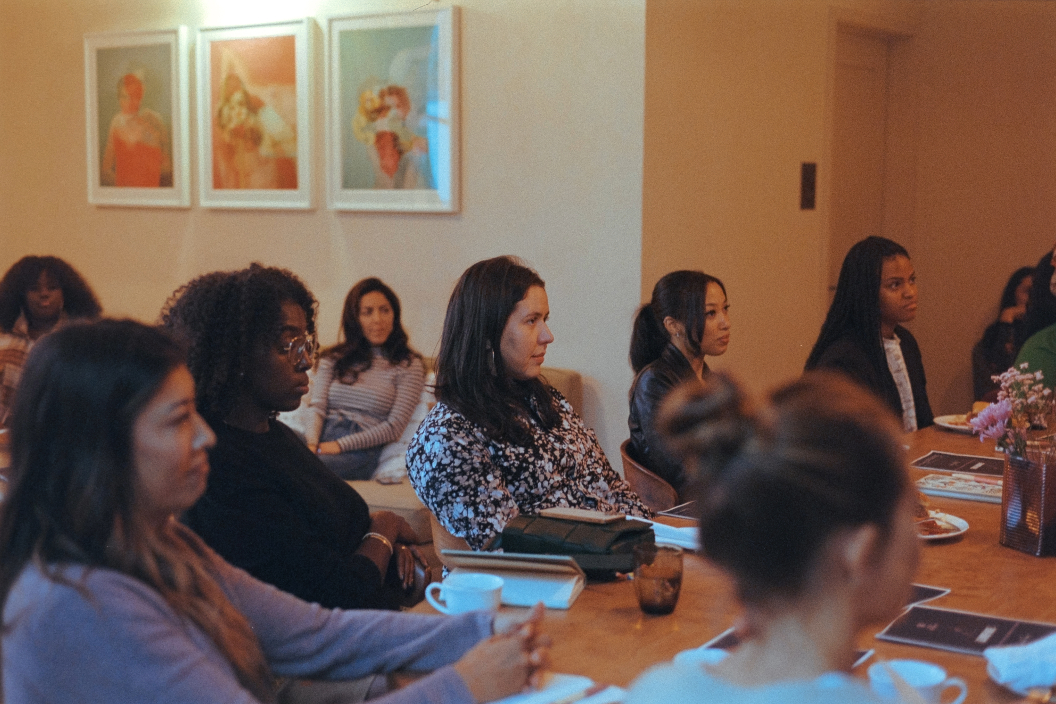Through Rosa Rebellion’s Compose Fellowship, Victoria Abraham found a safe space to advocate for herself.

By Victoria Abraham, Photo courtesy of Rosa Rebellion
A quick Google search of “self-advocating for women” results in a plethora of articles about how women can advocate for themselves in the workplace to get a raise or a promotion, the importance of self-advocacy and the barriers, such as racism and sexism, that can hold women back from reaching their professional goals. The idea is that doing excellent work isn’t enough; you also must speak up and promote yourself, and there are greatly effective (and less effective) ways to do so.
For example, one Harvard Business Review article suggests women should practice with small asks, team up with peers and co-workers and be empathetic and understanding of the needs of their boss or co-workers, framing their ask with those needs in mind. An Indeed article on the topic advises women to be specific in their ask, communicate with confidence and gratitude and use data to support their request—such as salary data if they want a raise or a portfolio of achievements if they want a promotion. The same article notes, “There have been various studies that point to a negative perception of women who assertively advocate for themselves in the workplace as well as those who do so without being assertive enough. The perception disadvantage increases for women of color who self-advocate.”
Sounds like a bit of a catch-22, doesn’t it? We need to advocate for ourselves to advance, but no matter how we do it, there are negative consequences and no guarantee of success. A study of 4,600 Australian women across 800 workplaces found that women ask for raises as often as men do, but men are more likely to be successful. The same study also found no evidence that women act less assertive than men in negotiations.
Therein lies the other crucial piece of the self-advocacy conversation: A woman can advocate for herself all she wants and practice all the self-advocacy tips in the universe, but if she is in an environment that is not receptive or supportive, her advocacy is going to fall on deaf ears. What this indicates to me is that where you’re advocating for yourself and with whom is at least as important as the how. The questions are how do we advocate for ourselves, and also what does an environment where women can successfully advocate for themselves look like?
This past November, I had the privilege of getting a glimpse of what such an environment could look like. I attended a retreat in Austin as a writing fellow with the Compose Fellowship, the goal of which is to provide mentorship to women of color writers and storytellers. Being a part of this community felt like I had been holding my breath, and I finally got the chance to exhale. There were three elements that made it feel this way for me.
The first is alignment of shared and individual goals.
There was no competition between the mentees or the mentors. We were all there to support each other in advancing our individual projects and united in the belief that individual success also meant group success. This helped everyone in the room feel empowered to give and receive feedback.
The second is genuine buy-in from the mentors and organizers of the program who were eager to share resources and ideas with the mentees and with each other to help set each of us up for success. There was a palpable excitement about being in the room together.
The third is psychological safety.
It felt safe to share deeply personal stories and fledgling ideas with relative strangers in this judgment-free space, not merely accommodating, but outright celebratory of diversity. Yes, we were all women of color, but we were also all different ages, from different places, with different backgrounds, careers, levels of experience and aspirations.
It’s easy to imagine how if, for example, the organizers had introduced an element of competition into the retreat—such as writing a story pitch in five minutes for a chance to get published, thereby pitting mentees against each other—or if there was a lack of transparency about opportunities—with opportunities being shared with some people and not with others—the three elements I describe above would have been eroded. Instead, they created an environment that was not intimidating, free from manufactured competition and geared toward success.
Advocating for yourself includes knowing your worth, and therefore knowing when something, someone or someplace no longer serves you. Advocating for other women includes creating an environment where individual success and team success are symbiotic, diversity is celebrated and resources, opportunities and information are shared equally.

